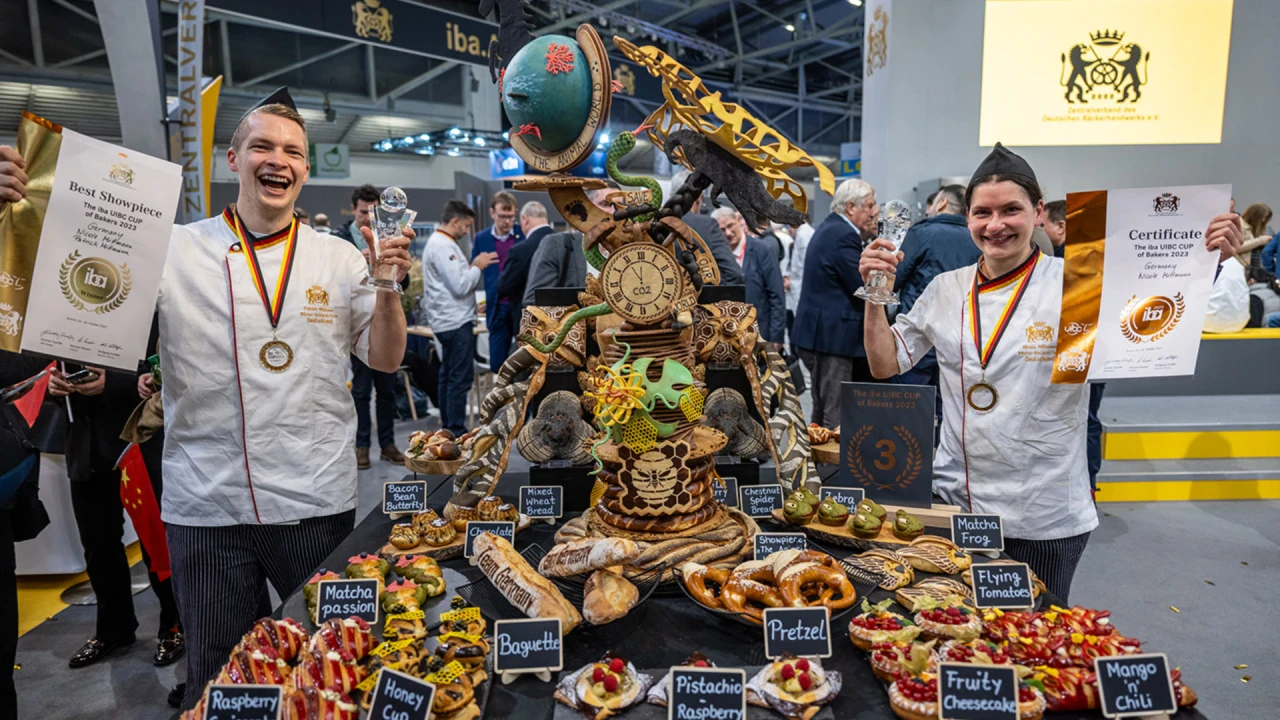A new 37,500 birds-per-hour poultry plant created for leading Saudi Arabian food company Almarai has been developed to keep pace both with growing demand and with changing consumer preferences.
 Almarai is a dynamic, $3.36 billion turnover food company based in Saudi Arabia. Already the world’s largest vertically integrated dairy company and the biggest food manufacturer and distributor in the region, the company entered the poultry business in 2009 with the launch of Alyoum, its brand of premium chicken products.
Almarai is a dynamic, $3.36 billion turnover food company based in Saudi Arabia. Already the world’s largest vertically integrated dairy company and the biggest food manufacturer and distributor in the region, the company entered the poultry business in 2009 with the launch of Alyoum, its brand of premium chicken products.
“We became involved after identifying the opportunity to provide consumers with a high quality, premium poultry, which is an important part of the family food basket in Saudi Arabia,” says Larus Asgeirsson, General Manager of Almarai’s poultry division.
“There was also an important food security issue: a strong commitment to build local production,” he added.
While whole birds are, and will continue to be, an important part of the market, consumer demand is also driving development more in the direction of fixed weight packs of, for example, breast fillets, drumsticks, thighs, legs or wings, or combinations of different pieces. Almarai’s objective was to be able to satisfy such demand with fully sealed, fixed-weight products meeting the highest standards of hygiene and presentation.
The launch of Alyoum involved the purchase of a factory and farming site in Ha’il Province, where Almarai first came into contact with the Meyn Ishida alliance. The advanced technical expertise and integrated approach of Meyn Ishida was in line with Almarai’s expectations for this sector’s development and, in keeping with the company’s ambitions, the scope of the project increased as the work proceeded. What began as a 21,000 bph (birds per hour) project, escalated over a 3-year period in three phases to become a 37,000 bph facility.
The new factory, with its 200 million birds per year capacity, is now one of the largest single output poultry plants in the world.
The equipment supplied included re-hanging and cut-up systems, deboning machinery, multihead weighers, checkweighers, tray sealers and batching and grading systems as well as X-ray inspection systems and metal detectors. In addition there are scanners, strapping and trussing machines and glazing equipment and also the many associated infeed systems.
 The level of integration is exceptional, thanks to a single organisation being in charge of supply and installation. Live bird handling, slaughter, evisceration, chilling, cut-up, deboning, batching and grading, weighing, piece mixing, packing, labelling and crating are all linked by, and contribute to, information exchange that enhances quality, efficiency and speed.
The level of integration is exceptional, thanks to a single organisation being in charge of supply and installation. Live bird handling, slaughter, evisceration, chilling, cut-up, deboning, batching and grading, weighing, piece mixing, packing, labelling and crating are all linked by, and contribute to, information exchange that enhances quality, efficiency and speed.
Once plucked, eviscerated and chilled, chickens can be sent for grading and packing as whole birds or delivered to one of the plant’s three cut-up systems.
For the whole birds, there are separate lines for packing into bags and trays.
Special fillet lines pack chicken breasts that have been removed with the greatest precision and then X-ray inspected for bone fragments. There are also separate packing lines for thighs, legs, wings and drumsticks. Little or nothing of the chicken is wasted, with lines also for giblets and for feet.
Other lines are devoted to producing mixtures of chicken pieces, such as drums, chops and wings, according to availability or market demand.
Most of these items can be delivered into fixed-weight trays or bags of high hygiene and appearance standards and as fresh or IQF (individually quick frozen) products. In addition, threaded through the plant are systems capable of collecting any of these parts for bulk packing.
Almarai’s view of what has been achieved reflects the reasons that Meyn, the poultry processing systems experts, and Ishida, the weighing, packing and end-of-line experts, came together to form Meyn Ishida as a one-stop shop for complete-factory projects.
“Meyn provided fast and efficient processing systems and machinery, as well as the expertise needed to train staff and production managers. Ishida provided automation of the weighing and packing processes to the same advanced level,” explains Larus Asgeirsson.
“The main benefit here, apart from the speed needed to keep up with the Meyn cut-up lines, was the reduction of giveaway to low levels.
 “We see the new Ha’il plant as equipping us to meet demand far into the future and also of enabling us to serve the market’s movement towards poultry pieces sold in fixed weight packs,” continues Mr Asgeirsson.
“We see the new Ha’il plant as equipping us to meet demand far into the future and also of enabling us to serve the market’s movement towards poultry pieces sold in fixed weight packs,” continues Mr Asgeirsson.
“Meyn Ishida provided us with a strong team of professionals to drive the installation. They were well prepared and extremely professional.
“The Meyn Ishida lines have now been operating for two years, and I find them robust and reliable: we have had minimal downtime.”
Mr Asgeirsson also praised the dedication of the Ha’il workers, whose dedication and readiness to learn enabled them to adapt to the change from a 30-year old factory to possibly the most modern poultry processing plant anywhere today.




